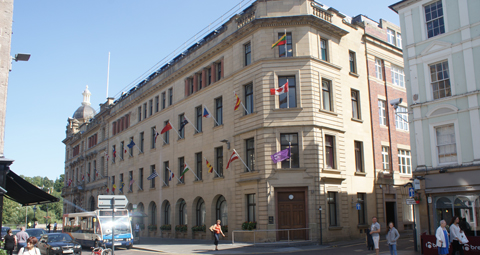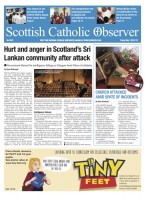BY Peter Diamond | May 3 | ![]() 0 COMMENTS
0 COMMENTS ![]() print
print

Church wants urgent meeting over council ban on education voting rights
The Church is seeking an urgent meeting with Perth and Kinross Council after the authority took a ‘disproportionate’ decision to remove Catholic voting rights from education committees following a row with representatives from other faiths.
Last week, Perth and Kinross Council become the first authority in Scotland to withdraw voting rights from church representatives appointed to sit on council committees.
The council voted in favour of a motion to amend regulations so that from May 1 only elected education committee members can vote on council matters.
This follows a decision to close a Kinross-shire non-denominational primary school last month, which was swung by the votes of two religious members of the Lifelong Learning Committee.
Margaret MacFarlane, the Roman Catholic representative on the committee, missed the Blairingone vote due to illness—but the Church has stressed it would not have voted on the measure in any case.
Legislation in Scotland states that there must be three church representatives appointed to positions on local authority committees.
The Scottish Catholic Education Service (SCES) this week made clear that Catholic representatives are only elected to serve on councils ‘where Catholic schools are present’ and only vote ‘on matters which affect Catholic schooling.’
There are four Catholic schools in Perth and Kinross, and the decision means the Church would have less say over their future.
SCES response
Barbara Coupar, director of SCES, said: “The recent vote in favour of the closure of a non denominational primary school was carried on the basis of a deciding vote from the Church of Scotland representative.
“Our Catholic representative wasn’t at the meeting and it is important to note that even if she had been, our representatives do not vote on matters that will not impact on Catholic schools.
“Therefore we believe there was a disproportionate response from the council on this issue and there were better alternatives to resolve the issue.
“We have a very distinctive and different role from the Church of Scotland as 20 per cent of Scottish schools are Catholic.
“In the case of any proposed changes impacting on Catholic denominational schools this includes a formal consultation with the Catholic Church.
“The Church representative on the education committee has an invaluable role in articulating the official response of the Catholic Church on these matters.”
Education Act
Mrs Coupar added: “Catholic schools were ‘transferred’ into state ownership in 1918 in the same Education Act which established local education authorities.
“With this Act came assurances that the specific characteristic of the Catholic school would be protected in legislation.
“One of the mechanisms for monitoring the state’s ongoing commitment to those assurances is the presence of a Catholic Church representative on every council where there are Catholic schools.
“The educational approach within Catholic schools is supported by a legislative framework which governs both the appointment of teaching staff and the content of religious and moral education programmes.
“It is therefore right, just and proportionate to have a representative voice on the education committee to express the views of the Catholic community and vote on matters that will impact directly on Catholic schools.”
Call for meeting
Representatives from Dunkeld Diocese including Bishop Stephen Robson are seeking meetings with Perth and Kinross Council in order to resolve the matter.
The Humanist Society Scotland has since lobbied to expand the banning of church reps on education committees.
However, on Monday April 29, Renfrewshire Council announced that there are ‘no plans or proposals to change the current voting arrangements’ at the local authority.
“Our religious representatives are valued members of the board and if proposals to change their role were to be forthcoming we would consult with all stakeholders before any decision was made,” council leader Iain Nicolson said.
The Scottish Government said that while councils were required to appoint religious representatives on education committees, their voting rights were ‘a matter for each local authority.’










